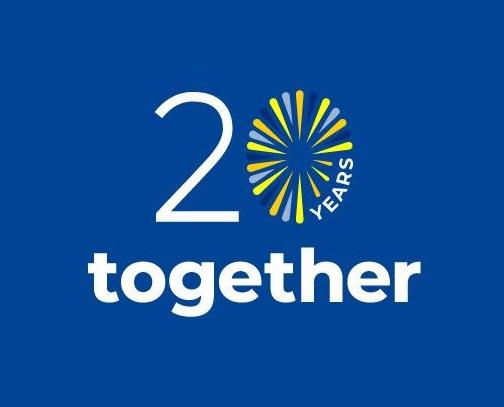20 years together in Interreg Europe

On 1 May 2024, ten of our Partner States celebrated their entry to the European Union. For 20 years now, public institutions from Cyprus, the Czech Republic, Estonia, Hungary, Latvia, Lithuania, Malta, Poland, Slovakia and Slovenia have enjoyed the benefits of good practice exchange and policy learning in Interreg Europe’s interregional cooperation projects and later also the Policy Learning Platform.
Institutions from the ten EU Member States had joined cooperation projects from the start even though the countries became the programme Partner States only in 2008. They were involved already in projects supported by Interreg Europe's predecessor programmes INTERREG IIIC East 2000-2006 and INTERREG IVC 2007-2013.
See below the numbers of projects with partners from the ten countries involved in interregional cooperation from their accession to the EU.
| Funding period | Number of projects | Number of project partners |
|---|---|---|
| Funding period 2000-2006 |
Number of projects 68 projects |
Number of project partners 189 project partners |
| Funding period 2007-2013 |
Number of projects 190 projects |
Number of project partners 521 project partners |
| Funding period 2014-2020 |
Number of projects 223 projects |
Number of project partners 466 project partners |
| Funding period 2021-2027 |
Number of projects 143 projects |
Number of project partners 309 project partners |
Partners from the ten countries received MEUR 108 in total from the EU funds for their Interreg Europe projects' cooperation in the last two funding periods. It is around 20% of the total ERDF budget committed to all Interreg Europe projects during that time.
This investment in cooperation brought a lot of new ideas and inspiration to those ten countries from the other parts of Europe. Partners from the ten countries shared back their good practices with the others as well. This exchange of experience turned into many concrete improvements in those ten countries.
You can see a few key performance numbers of the ten countries below, mainly covering the last programming period from 2014 on:
- 1,235 good practices shared with project partners and 587 of them are in our database (20% of all good practices)
- 321 improvements in policies addressed by the projects (25% of all improvements)
- MEUR 510 mobilised in the ten countries to implement lessons learnt from other partner regions (35% of all funds mobilised)
Many interregional cooperation projects in the ten countries led to concrete results in the regions. See below a few examples from the two preceding funding periods.
2007-2013
The MOB project introduced a new mobility initiative in rural regions of Central Transdanubia. Thanks to this initiative new on-demand mobility solutions connected old people to hospitals and doctors’ offices, goods to local stores, and students to local schools. The inspiration came from Germany.
You can read more about this project's achievement in this report.
Thanks to the RETS project, Maribor found alternative heating solutions for public buildings outside the district heating network and the natural gas network. They demonstrated in a local kindergarten how wooden biomass boiler and heating system work. The main inspiration came from Hungary.
You can read more about this project's achievement in this report.
2014-2020
Thanks to the HoCare project, elderly people in Cyprus are benefitting from telemedicine. A good practice from Slovenia inspired Cypriot health providers to set up telecare services to enable their ageing population to preserve their independence and continue to live at home.
You can read more about this project's achievement in this publication.
Thanks to the BRIDGES project, bio-based SMEs in the Polish Lubelskie region can now innovate with the latest research results. Some 63 SMEs, which, according to a tool inspired by a Greek practice, have innovation potential, are now receiving tailored support to help them innovate.
You can read more about this project's achievement in this publication.
You can read about other projects' improvements from the 2007-2013 in this report and from the 2014-2020 in this publication and at our project results page.
The programme's enlargement in 2008 extended the cooperation area in Europe also by Bulgaria and Romania, which joined the EU in 2008. Last year, Interreg Europe expanded to another seven countries.
We hope our new Partner States benefit from the Interreg Europe cooperation opportunities at least as much as those countries which joined the EU 20 years ago. Together, we will increase cohesion across the whole European continent.
You can read more about the 20th anniversary at the European Commission's special page.
